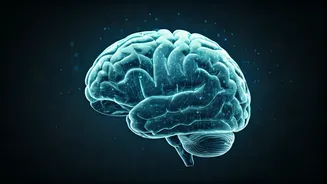The Changing Landscape
Wikipedia, the free online encyclopedia, exists as a crucial platform in the knowledge ecosystem. As the world transforms rapidly due to technological
advancement, the challenges faced by Wikipedia have grown, especially with the introduction of AI and its influence on information consumption. This includes concerns about the platform's reliability, the impact of AI-generated content, and its role as a trusted source of knowledge. Furthermore, the role of Wikipedia in society, its credibility, and its capacity to remain a dynamic and trusted source of information are constantly re-evaluated. The landscape is also altered by debates about online content and free speech. The ongoing discourse brings to light issues like platform governance, and the role of online encyclopedias in a society that is continuously changing due to technological innovation and socio-political factors.
AI's Influence
The rapid advancement of artificial intelligence presents both opportunities and potential risks for Wikipedia. AI can be a tool to improve content creation, automate tasks, and enhance user experience. However, there are significant concerns regarding the integrity and reliability of information, especially with the use of AI. AI-generated text, if not carefully supervised, can result in the spread of misinformation and errors. This poses a challenge to Wikipedia's reputation as a reliable source of information. The need for robust verification processes is heightened, as is the significance of human editors in preserving the quality and integrity of Wikipedia's content. AI's development could be a game-changer for online encyclopedias and poses constant requirements for adaptation. This requires that the platform be able to manage this new technological power carefully.
Musk's Scrutiny
Elon Musk's critique of Wikipedia has also put the platform under the spotlight, bringing attention to challenges in governance and content moderation. His views, as well as the views of others, have stimulated discussions about how encyclopedias function and whether they should be considered trustworthy sources of information. These external critiques have led to debates about the political and ideological biases, the role of human judgment in editing, and the potential for these biases to affect the information presented. The scrutiny of Wikipedia by powerful individuals has led to discussions about editorial independence, the balance of power on the platform, and the ongoing quest to provide unbiased and factually accurate information to the public. As a result, the community is encouraged to reflect on its responsibilities and the implications of its decisions.
Funding and Sustainability
Wikipedia's reliance on funding and sustainability strategies has become an ongoing issue. The platform, which depends on donations, must constantly ensure it remains financially stable. The economic viability of the platform is directly linked to the amount of trust it receives from the public. This funding model is essential to the organization's growth and ensures that its resources remain available to the public. The continued operation of Wikipedia has become a point of conversation, especially as it grapples with expenses like infrastructure, content moderation, and community support. The platform must also adapt to the evolution of the digital world, and must maintain its commitment to free knowledge and sustainable operational models. This also influences decisions about how to maintain and update the platform to ensure it stays relevant in the face of changing online content norms.
Adapting to Change
Wikipedia is actively involved in efforts to address these challenges. These efforts include initiatives to improve content quality through stricter editing standards, advanced fact-checking mechanisms, and efforts to fight misinformation. As a means of adapting to technological advancements, there is the use of artificial intelligence to improve content creation and automate administrative tasks. The emphasis on fostering community engagement and broadening the contributor base helps ensure that a diverse group of people is involved in the platform's operations. The need for transparency, accountability, and the ongoing process of adapting to technological and social changes are all essential for sustaining the platform's role as a trusted source of information. The organization's goal is to continue to evolve to meet the challenges and opportunities of the digital era.















